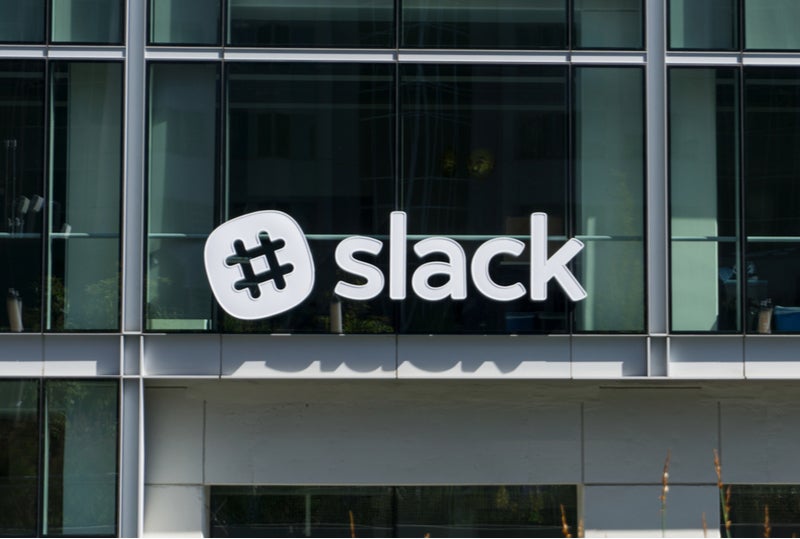
Workplace messaging platform Slack has filed an antitrust complaint with the European Commission against communication and collaboration platform Microsoft Teams, accusing it of anticompetitive practices.
In a statement, Slack said that the complaint had been made due to Microsoft’s “illegal and anti-competitive practice of abusing its market dominance to extinguish competition”.
Slack claims that Microsoft has “illegally” integrated Teams into its Office suite “force installing it for millions, blocking its removal, and hiding the true cost to enterprise customers” and is asking the European Commission to “take swift action to ensure Microsoft cannot continue to illegally leverage its power from one market to another by bundling or tying products”.
Antitrust law refers to the regulation of markets to ensure that the correct level of competition exists, designed to ensure that certain organisations are not able to obtain unfair monopolies, and prevent business activities that would limit competition.
The European Commission will now review the complaint before deciding whether to begin an investigation.
A Microsoft spokesperson told Verdict:
How well do you really know your competitors?
Access the most comprehensive Company Profiles on the market, powered by GlobalData. Save hours of research. Gain competitive edge.

Thank you!
Your download email will arrive shortly
Not ready to buy yet? Download a free sample
We are confident about the unique quality of our Company Profiles. However, we want you to make the most beneficial decision for your business, so we offer a free sample that you can download by submitting the below form
By GlobalData“We created Teams to combine the ability to collaborate with the ability to connect via video, because that’s what people want. With Covid-19, the market has embraced Teams in record numbers while Slack suffered from its absence of video-conferencing. We’re committed to offering customers not only the best of new innovation, but a wide variety of choice in how they purchase and use the product.
“We look forward to providing additional information to the European Commission and answering any questions they may have.”
Slack antitrust complaint comes as workplace collaboration tools see adoption surge
With a rapid rise in remote working, the use of collaboration, workplace communication and video conferencing tools have increased dramatically, with businesses in the market seeing a surge in user numbers.
According to Microsoft, as of April the number of Teams daily active users rose to 70 million, an increase of 70%.
In March, the number of Slack users also increased to 12.5 million, a 25% jump. In Q1 of 2020 Slack reported revenue of $201.7m.
Commenting on the issue, Matthew Hodgson, CEO of secure messaging provider Element said:
“Microsoft is certainly leveraging Office’s ubiquity to promote Teams at the expense of other competitors, much as they once leveraged Windows’ ubiquity to promote Internet Explorer. However, with both Teams and Slack, users are locked into a single vendor who they are obliged to trust with all their data – which is in its own right anti-competitive. A better world would be one where users could pick their own chat provider and still talk with one another, without vendor lock in, through open APIs and open standards.
“The best way for Microsoft to refute accusations of anti-competitiveness would be to adopt open standards such Matrix, showing they are not trying to lock users in, but fostering competition by letting users pick their preferred chat service while retaining full digital sovereignty over their data.”
Read more: Google says Fitbit data “won’t be used for advertising” ahead of EU antitrust decision




